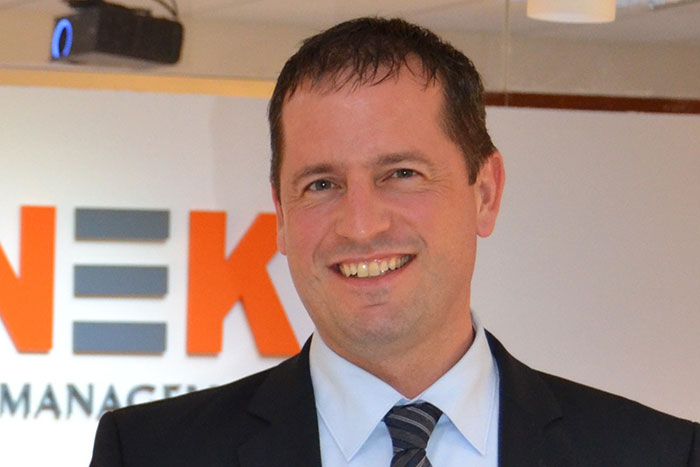Staff housing complexes can cut utility bills by up to AED 300,000
 Other News
Other News Subscribe to newsletter
Subscribe to newsletter
| 25 Nov 2014 |
UAE-based total integrated facilities management company Farnek, has conducted what is thought to be the region’s first staff accommodation water and energy audit. The study was carried out at the company’s accommodation centre in Al Quoz, Dubai, which houses over 1,000 employees.
The study, which was completed using Farnek’s own patented internet-based benchmarking tool ‘Optimizer’, estimated that over the course of a year, Farnek’s own staff housing complex consumed 51,000 litres of water and 2,500 kWh of electricity, costing over AED 1.5 million as well as producing 2,190 kilos of carbon dioxide (CO2).

“Before you can change anything, it has to be measured. Now that we have completed this first-of-its-kind study, we can benchmark this survey with future annual studies and identify where utility savings can - and indeed have already - been made,” said Markus Oberlin, CEO, Farnek, who was addressing industry professionals at the World Trade Centre recently.
“From a commercial perspective we can also now share this information with other companies looking to benchmark the water and energy consumption of their own staff housing complexes. On average we should be able to achieve up to 20% savings, representing an overall reduction valued at around AED 300,000 per annum,” he added.
To enable companies to reduce their carbon emissions, and therefore their utility bills, Farnek recommends installing A/C modules and energy-efficient A/C units, timers and LED lights, parking lights, roof insulation, waterless urinals, water tap aerators, reduced flow shower heads and employ economical car and van washes.
“By investing in some or all of these energy and water saving devices, the financial return can be seen in as little as 18 months,” said Oberlin. “Simple but effective awareness campaigns are also vital, such as encouraging staff to turn off lights when leaving a room and closing windows and doors when the A/C is running,” he added.
The total FM leader, which conforms to the latest British Institute of Cleaning Science (BICSc) cleaning standards, has also identified significant potential savings in terms of efficiencies in the area of staff accommodation cleaning, with training and awareness key to achieving those targets.
BICSc is the largest independent, professional and educational body within the cleaning industry with over 5,000 individual and corporate members in the UK and internationally; and is recognised for its stringent cleaning industry standards.
Additional team training also enables Farnek to further upgrade its employee skill set, enabling compliance with more of the 90 individual cleaning standards that BICSc trains and assesses, putting it ahead of other companies in the region in terms of core competencies.
“More and more companies are now highlighting sustainability as well as international best practice in their tender documents as minimum specifications, conscious of the standards of cleanliness, hygiene and indeed sustainability demanded by their stakeholders,” said Oberlin.
Having already launched the Middle East’s first carbon-free bus, Farnek has also benchmarked its staff transportation operation. Earlier this year it acquired its own garage to carry out transport maintenance for its 180 vehicles, confident that it can reduce the amount of water and chemicals which were used to wash their vans, when that service was previously outsourced. It is also working hard to cut down on the 430 litres of fuel each vehicle consumes on average per year, resulting in annual CO2 emissions totalling 1,750 kilos.




